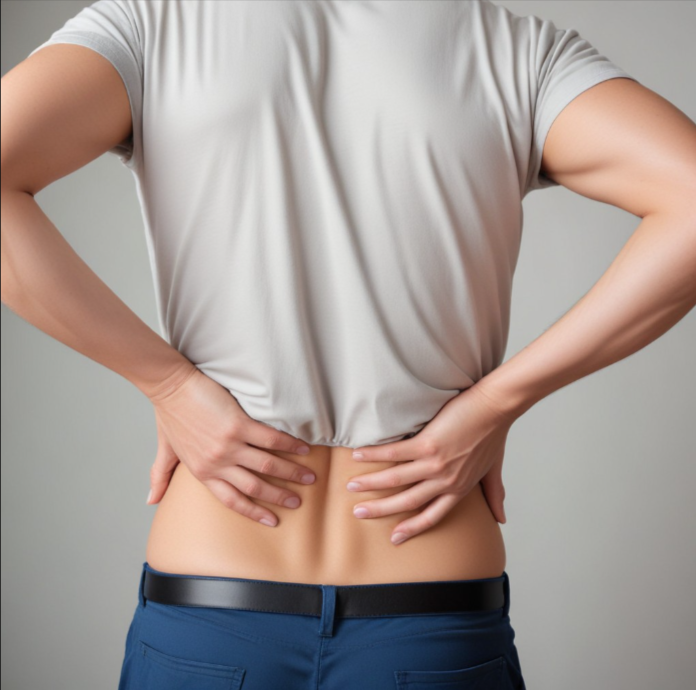Does Constipation Cause Back Pain?
Are you experiencing back pain along with constipation? You’re not alone.
Many people wonder whether constipation could be the culprit behind their discomfort. In this article, we will explore the relationship between constipation and back pain to shed light on this common concern.
Understanding Constipation and Its Causes
Constipation occurs when bowel movements become less frequent or difficult to pass, leading to discomfort and bloating.
There are several potential causes of constipation, including a lack of dietary fiber, inadequate fluid intake, sedentary lifestyle, certain medications, and underlying health conditions like irritable bowel syndrome (IBS) or hypothyroidism.
Exploring the Link Between Constipation and Back Pain
While constipation and back pain are separate symptoms, they can sometimes be related.
The digestive system and the back are connected through a network of nerves, and issues in one area can impact the other.
When constipation occurs, the accumulated stool can put pressure on the surrounding structures, including the lower back.
This pressure can cause muscle tension and discomfort, leading to back pain.
The Role of Posture in Constipation-Related Back Pain
Posture plays a crucial role in our overall well-being, including digestive health. Poor posture, especially when sitting, can contribute to constipation and back pain.
Slouching or hunching over can compress the abdomen, making it harder for the digestive system to function properly.
Over time, this can lead to chronic constipation and associated back pain.
How Constipation Affects the Nerves and Muscles in the Back
Constipation not only puts pressure on the muscles in the back but also affects the nerves in the area.
The nerves responsible for bowel movements and those that transmit signals related to back pain can become irritated or compressed due to constipation.
This can result in a cycle of discomfort, where constipation leads to back pain, and back pain further exacerbates constipation.
Lifestyle Changes to Relieve Constipation and Prevent Back Pain
Making certain lifestyle changes can help relieve constipation and prevent back pain.
Firstly, increasing dietary fiber intake by consuming more fruits, vegetables, and whole grains can promote regular bowel movements.
Staying hydrated is also crucial for maintaining proper digestive function.
Additionally, incorporating regular physical activity into your routine can stimulate bowel movements and strengthen the back muscles, reducing the risk of constipation-related back pain.
Diet and Nutrition Tips for Managing Constipation and Back Pain
In addition to increasing fiber intake, there are specific dietary considerations that can aid in managing constipation and back pain.
Avoiding processed foods, fried or greasy foods, and excessive caffeine or alcohol can help prevent constipation.
Including probiotic-rich foods like yogurt or taking probiotic supplements can also support a healthy gut and improve bowel regularity.
Exercise and Physical Activity for Improving Digestion and Reducing Back Pain
Regular exercise and physical activity not only promote overall health but also aid in digestion and alleviate back pain.
Engaging in activities like walking, swimming, or yoga can stimulate the digestive system and help regulate bowel movements.
Strengthening the core and back muscles through targeted exercises can also provide relief from constipation-related back pain.
Medications and Medical Treatments for Constipation and Back Pain
If lifestyle changes alone are not sufficient, there are medications and medical treatments available to address both constipation and back pain.
Over-the-counter laxatives or stool softeners can provide temporary relief from constipation.
However, it’s essential to consult with a healthcare professional before starting any medication.
In severe cases, where constipation or back pain is chronic or significantly impacting daily life, a doctor may recommend further evaluation or prescribe specific treatments.
When to Seek Medical Help for Constipation and Back Pain
While occasional constipation and mild back pain can often be managed with lifestyle modifications, there are instances when medical help should be sought.
If constipation persists for more than a few days, is accompanied by severe pain, bleeding, or unexplained weight loss, it’s crucial to consult a healthcare professional.
Similarly, if back pain becomes chronic, severe, or is accompanied by other concerning symptoms, medical evaluation is necessary to determine the underlying cause.
Conclusion: Taking a Holistic Approach to Address Constipation and Back Pain
In conclusion, constipation and back pain can be interrelated, with constipation potentially causing or exacerbating back pain.
Understanding the connection between the two is crucial for accurate diagnosis and effective management.
By incorporating lifestyle changes, adopting a healthy diet, engaging in regular physical activity, and seeking appropriate medical help when needed, individuals can take a holistic approach to address both constipation and back pain, improving their overall well-being.
Remember, if you’re experiencing persistent or severe symptoms, it’s always best to consult with a healthcare professional for personalized advice and treatment options.
.

